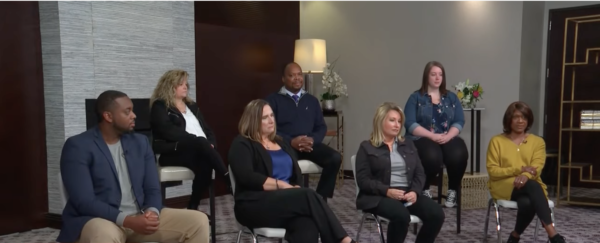Judge Unseals Names of Jurors In Derek Chauvin Trial Because Their Safety Is No Longer an Issue, Some Reveal What Led to a Guilty Verdict: ‘The Light Bulbs Just Went On’
The names of the 14 jurors in the Derek Chauvin trail has been released by Judge Peter Cahill just days before some members shared insights into their decision to render a guilty verdict.
Last year much of the world looked on during the arrest and subsequent killing of George Floyd after Chauvin held his knee on Floyd’s neck for more than nine minutes.
Jury members (L-R) in Derek Chauvin trial reveal what led to guilty verdict. Photo: screenshot/CNN’s YouTube
The 14 jurors who were eventually selected have mostly remained anonymous while some spoke out to share their views. Now, months after Chauvin’s conviction, Judge Cahill noted in his decision to unseal the names of the jury that concerns of any threats is unfounded.
“On the present record, this Court cannot assay any strong reason to believe the jurors continue to need protection from any external threats to their safety at this point, four months after this Court’s sentencing of Chauvin, or that there is a substantial likelihood that making the prospective and impaneled jurors’ names public information will interfere with the fair and impartial administration of justice,” Judge Cahill wrote.
During an interview on CNN’s “Don Lemon Tonight” with host Don Lemon, seven of the jurors — five official members and two alternates — spoke publicly on the high-profile case for the first time since the former Minneapolis officer Chauvin was found guilty on three charges, including second-degree unintentional murder, third-degree murder and second-degree manslaughter.
Juror Nicole Deters, an alternate, said that most were leaning toward “not guilty” or undecided for the third-degree murder charge following an initial temperature check voting until a fellow juror, Jodi Doud, pointed out that the charge needed the individual to intend harm — which could be proven when Chauvin restrained Floyd in the manner he did during the arrest.
“At some point, I think it was Jodi, I’m pretty sure it was Jodi [Doud] said, ‘Wait a minute, does the intended act of harm have to be the death of George Floyd, or can it be him not providing the life support?’ And it was like all of a sudden the light bulbs just went on for those people that I think were undecided or on the not-guilty side,” Deters said.
Doud explained her thought process that ultimately became the catalyst behind the final decision: “I brought up the fact that this is not what he did but more or less what he didn’t do. He did not provide lifesaving measures for George Floyd when he knew that the guy was in pain or needed medical attention,” she said.
During the trial, the prosecution argued that Chauvin’s extended restraint caused Floyd’s death, while defense attorneys for the former officer contended that Floyd might’ve died from a drug overdose.
For jury member Sherri Belton Hardeman, it was the Minneapolis Police Department’s own motto that cemented her stance. “What I thought about is something that was said during the trial, and that is, Minneapolis Police Department has a motto, and if I’m understanding it correctly, their motto is ‘in our custody, in our care,’ ” said Hardeman.
“George Floyd was in their custody. He was never in their care. And that for me just — it just hit hard. I don’t feel like they ever cared for him.”
Chauvin was found guilty in April 2021 and sentenced to 22.5 years in prison for his crimes.

